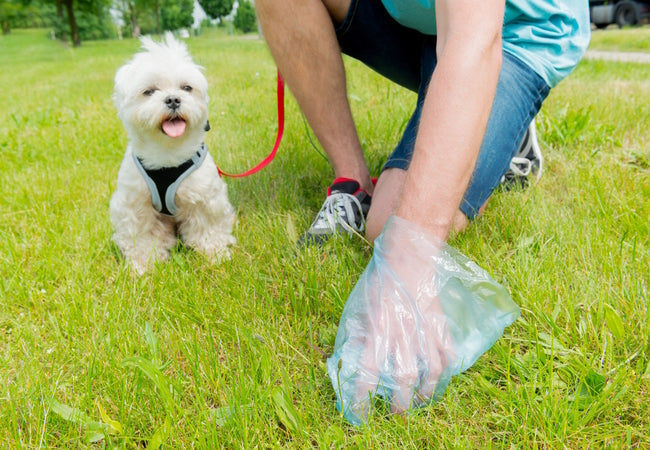2025 Vet Guide: How Often Should Dogs Poop? 🚽🐶

In this article
2025 Vet Guide: How Often Should Dogs Poop? 🚽🐶
By Dr. Duncan Houston BVSc
Dog poop habits may be an awkward topic, but they’re crucial to monitor. Bowel movement frequency, quantity, and consistency offer a wealth of insight into your pup’s digestive health. In this expert guide, we explore the typical range for adult dogs, puppies, and seniors, what influences these patterns, signs that warrant veterinary attention, and supportive care strategies you can apply at home or through Ask A Vet, Woopf, and Purrz services.
1️⃣ What’s Normal? Frequency by Life Stage
🧑🍼 Puppies
Rapid growth and smaller, immature digestive systems mean frequent toileting. Most puppies poop 5–6 times daily; by 12 weeks, this may reduce to 4 times, and by 6 months, about 3 times per day. By around 1 year, your pup usually shifts to the adult norm.
🐕 Adult Dogs
The majority of healthy adults go once a day on average, though twice or even three times is still within normal range, depending on diet, fiber intake, meal frequency, size, and activity.
👴 Senior Dogs
Digestion naturally slows as dogs age. Many seniors rely on a once-a-day schedule, and some may go every other day.
2️⃣ Timing After Eating & Daily Patterns
Digestion typically takes 8–12 hours. Most dogs have bowel movements ~30–60 minutes after eating or upon waking. Feeding two meals daily often leads to two pooping times: morning and evening. Puppies often need to go right after meals.
3️⃣ What Affects Poop Frequency?
- Diet quality & fiber: High-fiber diets promote regularity; poor diets or sudden changes can disrupt consistency or frequency.
- Water intake: Dehydration leads to hard stools and constipation.
- Activity level: Exercise enhances GI motility; sedentary dogs may be more prone to constipation.
- Health issues: Parasites, allergies, GI disease, pain, stress, or meds (e.g., antibiotics) can alter gut habits.
- Stress & routine changes: Even schedule shifts, travel, weather, or anxiety can influence pooping patterns.
4️⃣ When Should You Worry?
Short-term changes are often harmless, but some signs demand attention:
- 🚨 No bowel movement in 24–36 hours, especially without water/grooming issues.
- 🎯 Straining, hard/dry stools, small pellet-like droppings—lasting longer than a day.
- 💩 Loose, watery stools or diarrhea persisting beyond 24–48 hours.
- 🔴 Blood, mucus, abnormal color (black/tar-like, pale), consistent soft stool.
- 🌀 Other symptoms: vomiting, lethargy, loss of appetite, abdominal pain.
- ♀️ Sudden accidents in potty-trained dogs, frequent house pooping or urgency.
5️⃣ Common Digestive Issues & What to Do
💩 Constipation
If your dog hasn’t pooped in over 24 hours or shows straining signs, try gentle interventions:
- Increase hydration—add broth, use water fountains.
- Add fiber—canned pumpkin or vet-recommended supplements.
- Encourage exercise—extra walks stimulate motility.
- Groom rear end to prevent impacted fur.
If no improvement in 48–72 hours, or if severe symptoms (vomiting, pain, blood), seek veterinary care—underlying causes may include impaction, pain, anal gland issues, or endocrine ailments.
💩 Diarrhea & Loose Stool
Isolated diarrhea may resolve with brief fasting and bland diet, but monitor closely. Persistent diarrhea (lasting >48 hours), especially with mucus, blood, or paired symptoms, requires vet attention.
6️⃣ Monitoring Stool Quality
Assessing stool is as important as frequency. Ideal poop is:
- Firm, segmented like Play-Doh (score ~2/7).
- Brown in color with no mucus or blood.
- Free of worms, foreign objects, mucus, or oily coating.
7️⃣ Tracking & When to See Your Vet
- Record: time, consistency, color, volume, odor, and unusual contents.
- Note behavioral or appetite changes.
- Consult your vet if concerning patterns last more than a day, especially with added symptoms.
Diagnostic tools may include fecal tests, bloodwork, imaging, or abdominal exam.
8️⃣ Home Support & Healthy Digestion Tips
- Provide fresh water constantly—use fountains or flavor additives.
- Feed high-quality, digestible diet with fiber if needed.
- Maintain regular feeding and potty walk schedule (e.g., 30 min post-meal).
- Supplement with vet-approved probiotics (e.g., Purina FortiFlora, Nutramax Proviable).
- Ensure daily exercise to stimulate digestion.
- Groom rear end regularly, especially for long-haired breeds.
9️⃣ Integrating Ask A Vet, Woopf & Purrz
- Ask A Vet: On-demand consultation to evaluate poop data and suggest tailored care.
- Woopf: Meal and medication reminders help maintain a digestive routine.
- Purrz: Logs stool consistency, triggers, and symptoms to spot trends.
🔟 FAQ
Q: Is daily poop enough, or should dogs go more?
Once a day is normal, but twice or thrice is healthy for many adults. Know your dog’s routine, and watch for changes.
Q: How long after eating should they go?
Typically 30–60 minutes post-meal or after waking. Use this window for scheduled walks.
Q: Can they safely skip a day?
Skipping once isn’t worrying, but no stool >24 hrs and signs of discomfort may point to constipation—monitor closely or consult your vet.
Q: What’s normal for puppies?
Puppies need multiple breaks—typically 4–6 poops/day—settling to adult rates by around a year.
💬 Real Pet-Parent Insight
A Reddit user notes:
> “Twice a day. 12 hours apart… roughly around 5 am and again around 5 pm.”
Many dog owners find consistent twice‑daily poops at predictable intervals.
🏁 Final Thoughts from Dr Houston
Understanding your dog’s normal poop pattern is an essential part of proactive healthcare. Frequency, timing, and appearance all provide vital clues. While occasional deviations are normal, persistent changes—especially with other symptoms—deserve veterinary attention. A simple log, healthy diet, water intake, and routine walks go a long way. For tailored guidance, backup from Ask A Vet, Woopf scheduling, and Purrz tracking ensures consistent wellness.
Download the Ask A Vet app to connect with trusted vets, track habits, and support your dog’s gut health helpfully! 🩺📱
Healthy digestion equals happy dogs in 2025 and always!
AskAVet.com – Professional vet care, anytime, anywhere. 📱






